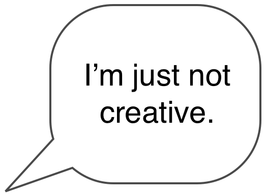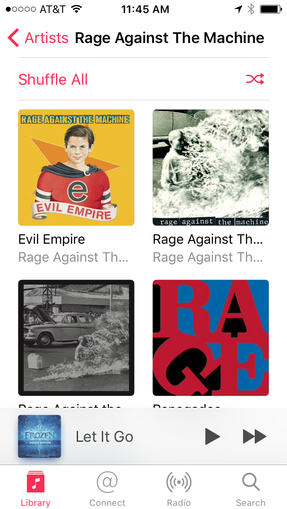 Those of us who were typically developing children pretended, played, danced, and colored and cut and pasted and taped with abandon. I see it every day with my own children ages 3 and 5. For most of us, supportive adults let all of that creativity happen, and even encouraged it. Creativity was part of our early development. It was a process. It wasn’t about the output. I don’t know anyone who would look at the drawings or collages or sculptures of a 3 or 5 year old and evaluate whether or not they are creative: “No, honey, the way you taped that pipe cleaner next to that scribble mark is not very creative.” It seems odd to even conceive of making such a value judgment because most of us appreciate a child’s process, their exploration of materials, and early efforts at self-expression. That’s what kids are supposed to do. Somewhere along the way, however, we do start judging. We start telling kids that this creativity of theirs is either good or bad - or, more specifically, they are good or bad at it – rather than reinforcing it as a valuable part of who they are and who they are becoming. We do this because we start judging their creativity as a product and lose the beauty and necessity of the process. In doing so, we actually push our kids away from the creative process as they get older. To make matters worse, we also start to evaluate good or bad creativity relative to very specific and finite mediums. So, the kid who can draw or play an instrument is told he is creative. The kid who loves math or history or even science, on the other hand, is at least by contrast, if not explicitly, told he is not. Creativity perversely then becomes the exclusive realm of the arts. As a result, we again push most of our kids away from the creative process. Creativity is for some and not others. Most of us have no idea how we have used creativity in a way that hurts the very idea we value. We see how “creative” people question, deconstruct, or synthesize things in ways that are unique. We appreciate ways that they interpret and express the world. But, we have lumped this all into a generic term. We should be more explicit about what we value in creativity. We should tell people we appreciate how they thought about something, that their question was great. We should ask them how they came to think of or express an idea in a way we hadn’t thought of. We should celebrate and ask about their process for learning or organizing new information. We should try to understand how and where they arrived at some kind of divergent thinking. Basically, we should be more creative about how we think about, acknowledge, and invest in creativity. I understand why so many adults say that they aren’t creative. I just don’t buy it. We’ve been brainwashed by an evaluative and arbitrarily narrow use of the word. We need to reclaim creativity in each of our lives and work. We need to stop seeing creativity as the developmental realm of the child or the specific domain of the arts. Creativity is within all of us, and all of us will be better off when more of us accept it, and put it into action.
0 Comments
 Today at lunch, I was about to start a brief workout, part of my only-sometimes-successful attempts at keeping my mental state healthy enough to be a decent parent (any physical benefits are ancillary), and I looked down at my iTunes. There on that little screen was the summary of Fatherhood, at least for me. In the interest of burning some extra energy, expending some pent up tension, I was putting Rage Against the Machine on shuffle. As I glanced down putting my earphones in, I noticed that the last song I had played was from none other than the movie Frozen: “Let It Go.” Fatherhood. But, this Fatherhood story isn’t just about the fact that I am a man with 40 years of life under my belt and a Dad with 5, and that those two lives aren’t always in sync and certainly don’t fully overlap. This was uniquely about Rage and “Let It Go.” At times, I rage internally against the structures and routines, the relentlessness and lack of “me time” that I experience as a Father. Most of this remains pent up inside. This is when exercise helps. Alternately, I will joyfully and unabashedly walk around the house singing “Let It Go” at the top of my lungs (and I have a terrible voice), backed by the intermittent voices of my 3 and almost 5 year old girls as they recall (or make up) the words, and choreographed with our collective dramatic dance movements. Both are me completely. Fatherhood is hard as shit, and I rarely openly accept that things are hard for me. I need to rage. I also need to let it go. Sometimes, I match my 3-year-old’s tantrums with my own brief verbal tantrums. Not always a great response. Sometimes, I lay my head back and close my eyes and pretend none of it is happening, let it go. Also, not always a great response. I suspect that the best answer, the sweet spot for Fatherhood, lies somewhere in the middle. Fatherhood is too important a job not to take it seriously, to approach it with diligence, consistency, and maximum effort. So, I will stand by my intensity. It is also too important not to just let some things go, accept that the process of raising children is a life’s work, and is, in fact, hard as shit. So, I will also stand by my occasional checking out. But, day-to-day, it’s imperative to seek the appropriate middle ground, and develop the tools to maintain it. This isn’t a destination; it is the process of parenting. I can’t wait to get home and see them. |
Categories
All
Archives
April 2024
|
 RSS Feed
RSS Feed